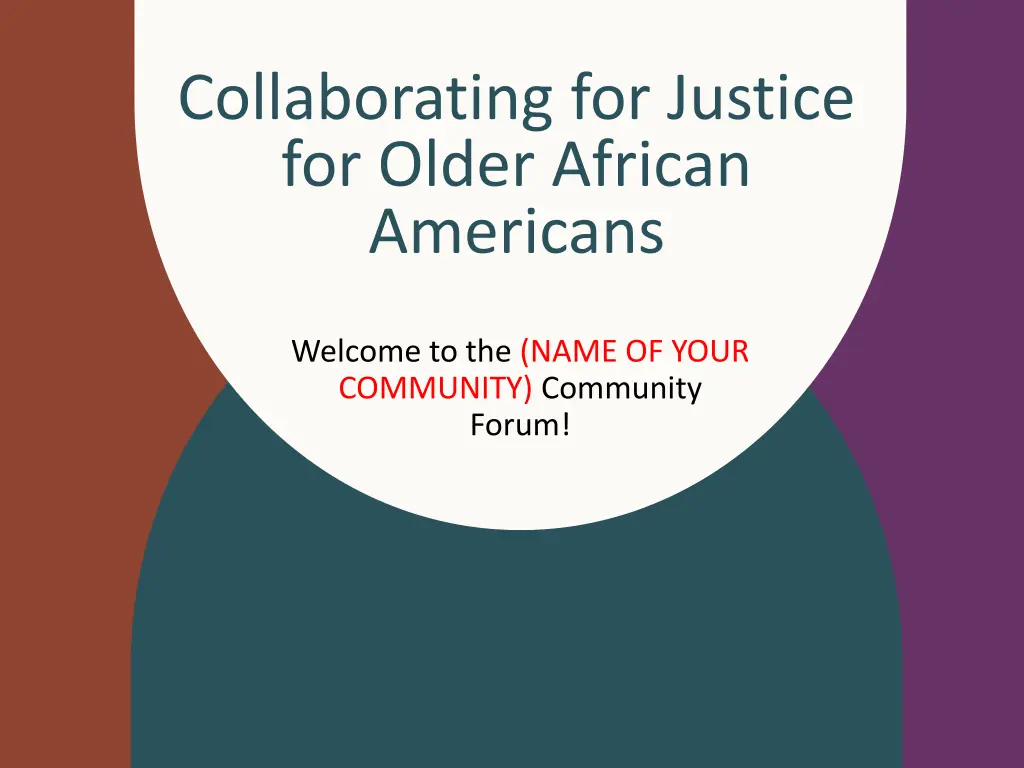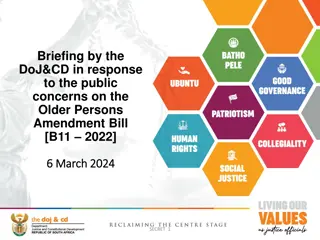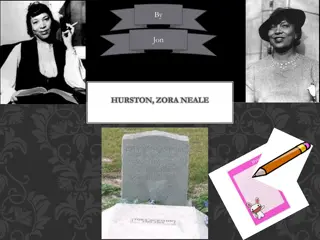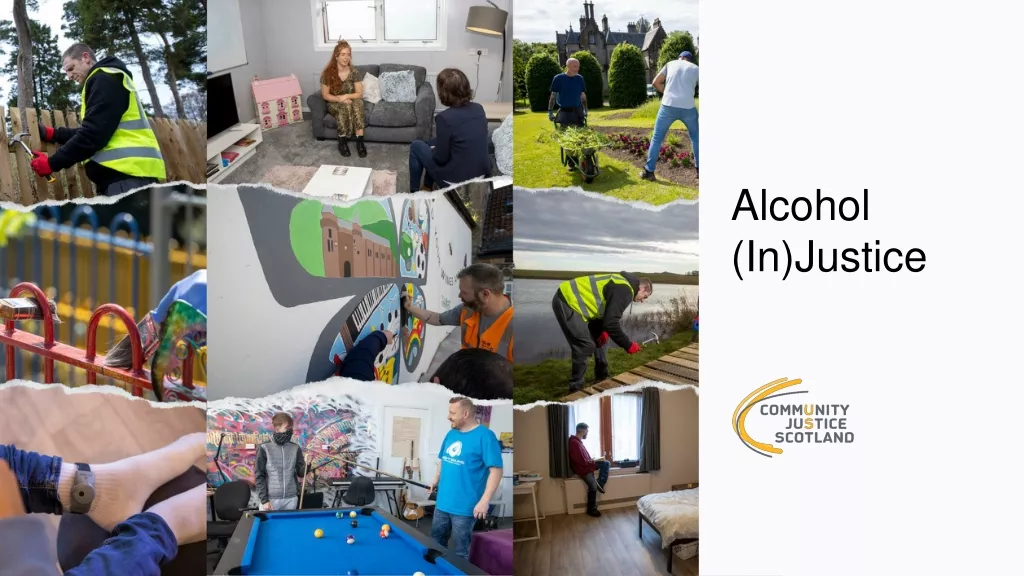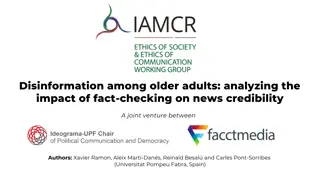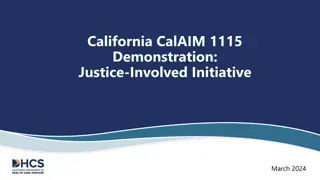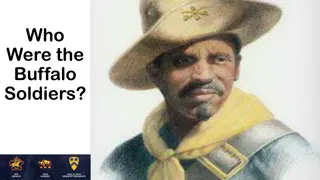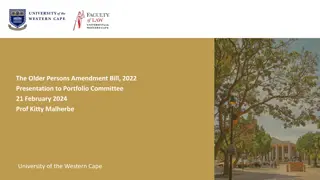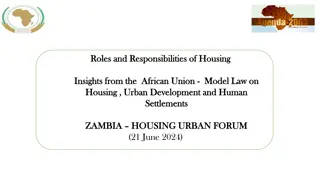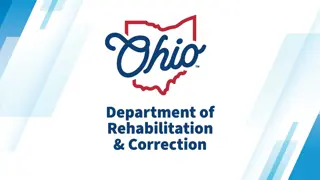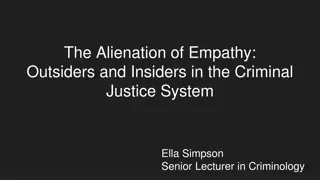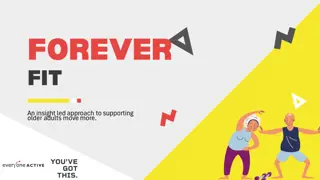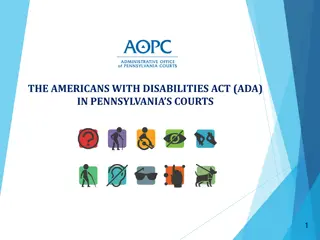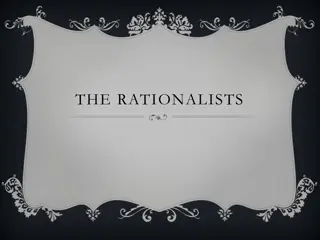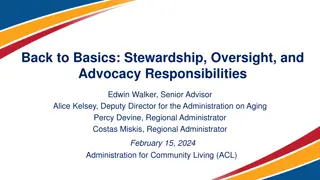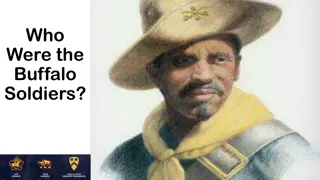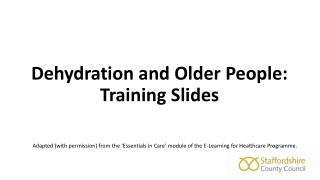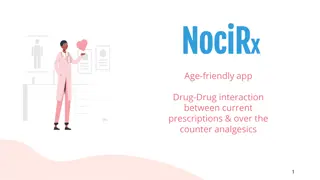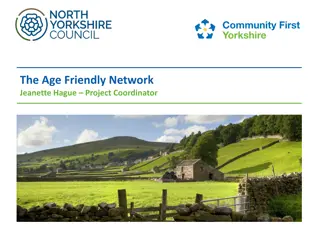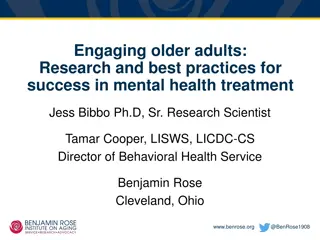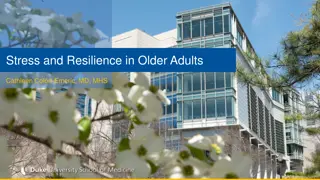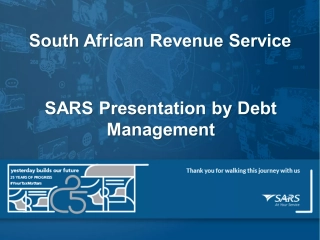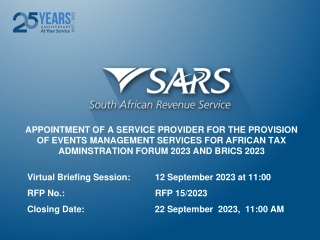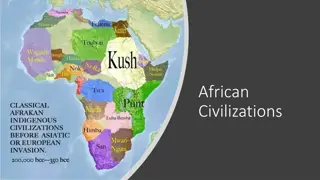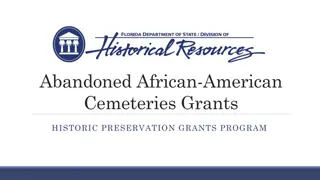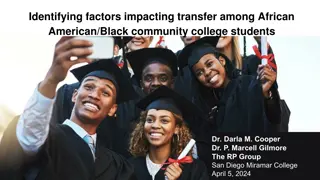Collaborating for Justice for Older African Americans
Join our community forum to create a coordinated space for older African Americans to age with safety and dignity. Learn about our objectives and collaborate to address issues faced by this demographic. Let's work together for a just community.
Download Presentation
Please find below an Image/Link to download the presentation.
The content on the website is provided AS IS for your information and personal use only. It may not be sold, licensed, or shared on other websites without obtaining consent from the author. Download presentation by click this link. If you encounter any issues during the download, it is possible that the publisher has removed the file from their server.
Presentation Transcript
Collaborating for Justice for Older African Americans Welcome to the (NAME OF YOUR COMMUNITY) Community Forum!
Community Forum Objectives We want (NAME OF COMMUNITY) to be a coordinated community where older African American adults age with the safety and dignity they deserve. We can t be coordinated until we know what is currently happening in (NAME OF COMMUNITY). Let s get to know one another better! 2
Your Facilitators Name, Agency or Affiliation Name, Agency or Affiliation 3
Your Hosts Use this slide to describe the organization or elder justice community coordination team that is hosting the community forum. Describe the purpose, structure and goals of the organization or elder justice community coordination team so participants understand the context for the event. 4
Introductions and Shared Interests Name Your Affiliation What brings you here? 5
Ground Rules Listen to understand Let others share without interruption Commit to learning Avoid assumptions Share the time Encourage others to participate Stay on topic and on time Limit side conversations Remember impact vs intention 6
Collaborating for Justice This project is part of a guide developed by the National Clearinghouse on Abuse in Later Life (NCALL) to support communities in improving responses to older African American victims of abuse through equitable community collaboration. The Collaborating for Justice Guide contains guiding principles for collaboration between mainstream organizations and African American programs and a toolkit on planning a community forum as a starting point for advancing collaboration. 7
We All Play a Role in Addressing Elder Abuse Elder abuse is a hidden yet growing problem. 5 million older adults are impacted annually. The issue is becoming more urgent as the U.S. population of older adults is rapidly growing. The older adult population is becoming more racially diverse than ever before. 8
Cultural Context "Interpersonal relationships are culturally constructed, and any attempt to understand elder mistreatment should take into account cultural context. M Li, R Chen, XQ Dong, 2020 9
Focusing on the African American Community For some African Americans, traditional helping systems aren t viewed as supportive: Criminal Justice System Human Services Others: Healthcare, Housing, Education Culturally-responsive and culturally-specific programs often have the expertise, credibility, and knowledge to best serve the African American community. 10
Social, Political and Economic Context In addition to culture, services and community responses will be most effective if they understand and recognize the social, political and economic realities. Vann, 2002 11
What is the Social, Political and Economic Context? Historical and present-day racialized oppression and subsequent trauma has resulted in the marginalization of African Americans in communities across the United States. Individual Interpersonal Institutional As a result, there persist racial disparities in many areas: health, education, economics, housing, politics. 12
In the Context of Abuse For older African Americans, the experience of abuse, neglect, and exploitation does not occur outside of the context of the family, particularly when the person causing harm is a partner, adult child, or other family member. Addressing the older adult s priorities first will build trust and support their safety. 13
Collaboration Is Key Supporting older adults impacted by abuse is complex and requires multidisciplinary responses. Supporting older African Americans requires understanding the historical, cultural, and political context. Culturally-specific programs have this understanding - they play a vital role in meeting the needs of older African American survivors and these programs must be considered essential partners. 14
Building a Holistic Network Think within and beyond the typical elder justice partners to build a comprehensive network that reflects the holistic experience of older African Americans. 15
Question Set 1: Getting a Baseline What is currently happening in (NAME OF COMMUNITY) to support older African American adults? How do you partner with the African American community? What does your involvement look like? Services and initiatives Partners Outreach strategies 16
Question Set 2: What are the Issues? What are the most important issues that must be addressed to support the safety and well-being of older African Americans? What do you believe our community needs to do to improve the safety and well- being of older African Americans? 17
Question Set 3: What are Our Opportunities? What current resources exist to address these needs? What s stopping us from doing what needs to be done? What opportunities exist? / What would it take to make it happen? 18
Closing Thank you for coming! Information about Elder Justice community coordination team How they can get involved 19
Next Steps Use this slide to outline what the participants can expect next. For example: What will be done with the information they shared? Will it be summarized and sent out to the group? Will follow-up meetings be scheduled? 20
